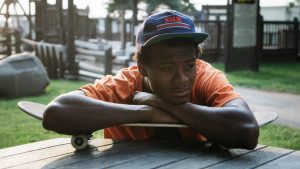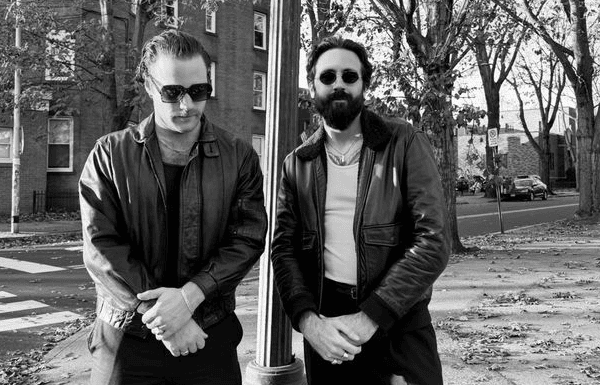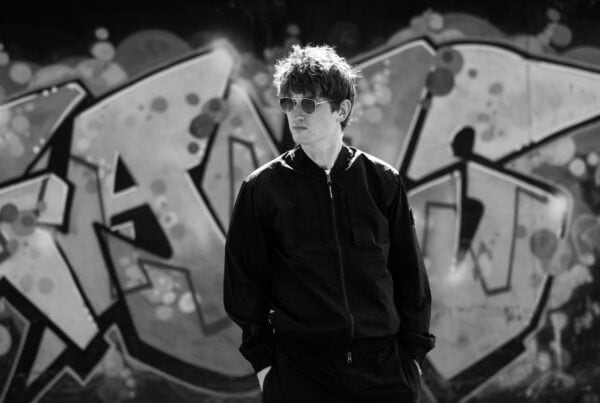With so many streaming services out there, all with their own ever-expanding libraries, it can be daunting trying to find something new and interesting to watch. Each week, Three to Stream will scour the Internet and offer up three movies/TV shows/documentaries/whatever worth checking out and where to find them. Let us know what you’re watching in the comments or on the Soundsphere socials and you may be included in next week’s write-up!
Oh, how I hate Trackmania: Turbo. OK, that’s not entirely true, since Trackmania is an impeccably designed racing platformer to such a degree where every fuck-up is one’s own damn fault and every stage can be bested through repetition and perseverance, like Super Meat Boy on wheels. What I really hate are my own perfectionist tendencies, refusing to finish a stage with anything less than a gold medal time cos my brain has apparently been coded to self-flagellate for ever and ever, and whichever monster made the unforgivable progression decision to force the player to get gold medal times in every stage otherwise they can’t play past a certain point. I thought we left this Guitar Hero-ass artificial gating system back in the 2000s where it belonged! Stupid lockdown nudging me back into Trackmania to get all angry again.
Here’s three to stream for this week.
Minding the Gap [BBC iPlayer]

One of the best documentaries I have ever seen, there are parts of the Oscar-nominated Minding the Gap that are going to stick with me for a very long time. First-time filmmaker Bing Liu’s deeply personal and astutely-observed documentary about himself and his skater friends growing up in Rockford, Illinois captures small-town poverty-line life with affecting relatability and constant self-examination. It’s a gutting visual essay dissection of the punishing cycle of generational abuse, and how factors of class and race and one’s own upbringing cause that cycle of constant damage (both inward and outward) to perpetuate ever more. Liu’s film functions both as a stand-in case study of America at large and a deeply personal cry for help towards his childhood friends that manages to simultaneously convey a highly specific set of experiences whilst still being deeply affecting and relatable for, say, somebody living in England somewhat more comfortably with no skateboarding or traumatic abuse experience.
I am not going to lie and tell you this is an easy watch you can just throw on will-nilly. It’s a heavy, heavy film which does not shy away from the uncomfortable consequences of its subjects and the ugliness they can occasionally sink to. What makes the doc enthralling rather than a miserablist slog is the virtuoso filmmaking; empathetic yet constantly critical and questioning, never more so than to itself, undoubtedly because of Liu’s personal investment. The way he and his co-editor Joshua Altman arrange and drive this near-decade of footage across 90 minutes is powerful in its cumulative effect, a gradual drifting apart whilst highlighting how little has really changed across that period of time. How all the maelstrom lifts like a clearing fog during the joyous expressions of the skateboarding sequences, and that complete opposite of such a feeling during a heartwrenching and chilling admission by Zach just near the end. Like I said, it’s one of the best documentaries I have ever seen and the song Liu chooses to send to credits with pushed me over the brink into full-on cathartic sobbing. Perfect all round. No excuse to not check this one out.
Beach Bunny – Honeymoon [Spotify/Apple Music/Tidal/Bandcamp/etc.]

In one of those twists of cruel fate rather like rain on your wedding day or a free ride when you’ve already paid, a lovely summery warm-spell has chosen to arrive this week right in the midst of a government-mandated COVID-19 lockdown. Still, even with more artists delaying their albums every day and the whole idea of a “Song of the Summer” likely being dead in the water this year since the communal aspect required to christen something a “Song of the Summer” naturally cannot be fulfilled, that doesn’t mean you can’t still blast some gleaming sunshiny jams to ring in the nice weather. But whilst Dua Lipa has the pop game on lock (as covered last week) and Rolling Blackouts Coastal Fever prep their sophomore album (and a potential AOTY if the infectious “Cars in Space” is anything to go by), how’s about I suggest you vote third party and check out the debut album by Chicago indie pop quartet Beach Bunny?
Led by songwriter and singer-guitarist Lili Trifillo, the band have been very slowly building up a cult following over the 2010s, having a minor breakthrough moment last year when their excellent loosie single “Prom Queen” went viral on TikTok, and all leading up to their first album proper, Honeymoon, which dropped back on Valentine’s Day. It’s a tight and compact affair, just nine tracks in 25 minutes exactly, full of sugary power pop hooks, fuzzy bubblegrunge guitars, and emo-adjacent lyricism tackling relationship troubles and crippling feelings of insecurity. In terms of more recent acts powering this 90s-reminiscent revival, Honeymoon puts me most in mind of Charly Bliss’s instant classic 2017 debut Guppy, although Trifillo’s lyricism is less acerbic and more heart-on-sleeve than that record. What it does share is that album’s laser-precise songwriting, the kind where every song sounds as gratifying and lovable on the fortieth listen as it does on the first, and a penchant for little touches that don’t immediately stand out but absolutely make a song once noticed. The snare rolls on “Colorblind,” the hold-music keyboard tone of “Racetrack,” the way that Trifillo’s vocals get more resigned and defeated the further into the glorious chorus of “Cuffing Season” she gets.
Even in a bumper first three months for music, Honeymoon stands the hell out and deserves far more attention than it’s currently gotten. Give it a stream and then cross your fingers this pandemic buggers off before their brief UK tour happens in early June!
[bandcamp width=100% height=120 album=2102983131 size=large bgcol=ffffff linkcol=0687f5 tracklist=false artwork=small]The Firefly Fun House match from Night 2 of WrestleMania 36 [WWE Network]

…I’ve kinda become obsessed with this segment. Ever since it aired last Sunday night during part 2 of the weirdest WrestleMania to ever occur, I’ve found myself constantly drawn back to it. Rewatching the whole thing, reading excellent write-ups dissecting all of the symbolism and metaphors rammed into it, pondering it in my head over and over. It might be one of my favourite things I have ever seen professional wrestling do because of just how unlike anything else in the medium’s history it is. Sure, you can point to antecedents like the Broken-verse, Vampiro’s history of off-site gimmick matches in WCW, the entire existence of Lucha Underground, or even the already infamous “Boneyard Match” between Undertaker and AJ Styles at the previous evening’s WrestleMania, yet none of them were really anything like the Fun House match. But at the same time as it being completely unlike pro wrestling’s usual rules and conventions, it’s also something that could only happen in the medium as it relies so heavily upon the rich extended history of its characters and ever-blurry lines between kayfabe and reality that you just cannot do in a typical television show.
For those of you who are already lost, the gist of the “match” involves John Cena, one of the biggest stars WWE ever who has recently made legitimate mainstream entertainment and Hollywood inroads, going up against “The Fiend” Bray Wyatt, a sort of demonic split-personality horror villain who does promos as a smiley sweater-wearing children’s TV show host that exists in a place called the Firefly Fun House and wrestles in matches as an almost indestructible monster clown. (It’s wrestling, just go with it.) Rather than having a professional wrestling match against Cena, however, Wyatt teleports him to the Firefly Fun House and proceeds to spend 15 minutes psychologically dissecting the past near-two-decade career of John Cena the character.
I honestly cannot describe it properly or do it even a modicum of justice within the very stringent word limit of these articles, but the results are legitimately (and I saw this with no hyperbole or irony) more thematically loaded and intellectually enriching that most actual “legitimate” movies and TV shows. It functions as a vicious condemnation of WWE’s (and by extension Vince McMahon’s) toxic ideas of what a heroic role model babyface should be, a phenomenal character study for Cena as both a performer and a person, a fascinating vent of over a decade of pent-up frustrations in the industry he clearly still loves so much despite everything for Wyatt (whose Fiend gimmick only appeared a year ago but he’s been a performer in the WWE since 2010), and a surreal arthouse horror-comedy short film in its own right. Admittedly, I have no idea if it’s going to work for anyone who hasn’t been following wrestling for years – it’s all storytelling and character work that plays upon a past history that the WWE especially has largely trained its audience to not bother remembering – but it is the kind of segment that I think demonstrates just what wrestling can do when it leans into its unique strengths: its blurry relationship with reality, its inherently campy nature, and the natural connection that comes from years of uninterrupted real-time character history unfolding in front of the audience.




